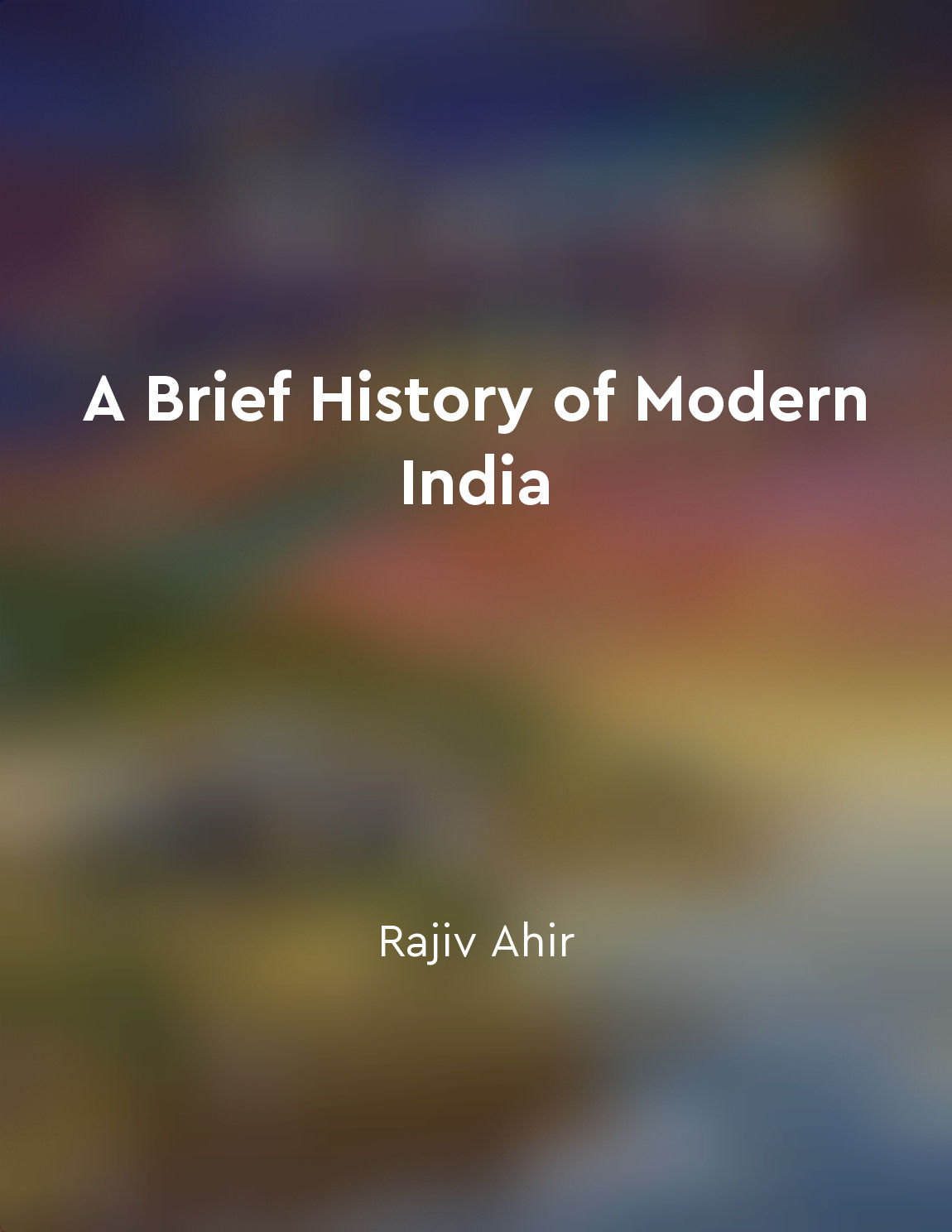Audio available in app
The country faced challenges postindependence from "summary" of India After Gandhi: The History of the World's Largest Democracy by Ramachandra Guha
The challenges faced by India in the aftermath of independence were immense and multifaceted. The newly independent nation had to grapple with the daunting task of nation-building, amidst widespread poverty, illiteracy, and social inequality. The partition of the country along religious lines had left behind a trail of violence and displacement, further complicating the process of rebuilding the nation. One of the most pressing challenges that India faced post-independence was the task of integrating over 500 princely states into the newly formed union. Each of these states had its own unique history, culture, and socio-political dynamics, making the process of integration a complex and delicate one. The successful integration of these princely states into the Indian union was a testament to the political acumen and vision of the country's leaders. Another major challenge that India faced in the aftermath of independence was the task of drafting a new constitution that would serve as the guiding light for the nation. The Constituent Assembly, comprising representatives from across the country and from diverse backgrounds, worked tirelessly to draft a constitution that would reflect the aspirations and values of the Indian people. The adoption of the Constitution on January 26, 1950, marked a significant milestone in India's journey towards becoming a democratic republic. In addition to these internal challenges, India also had to contend with external threats and pressures in the post-independence era. The country found itself embroiled in conflicts with its neighbors, most notably Pakistan, over issues such as the partition of the country, the status of Kashmir, and territorial disputes. These conflicts posed a serious threat to India's security and stability, and required deft diplomatic maneuvering to navigate.- India managed to emerge as a vibrant and thriving democracy in the decades following independence. The country made significant strides in areas such as education, healthcare, and economic development, lifting millions of people out of poverty and improving the overall quality of life for its citizens. The challenges faced by India in the post-independence era were indeed formidable, but the resilience and determination of its people helped the country overcome them and chart a path towards progress and prosperity.
Similar Posts
The struggle for gender equality remains a key issue in South Asian societies
Gender equality in South Asian societies continues to be a pressing concern, with women often facing discrimination and margina...

Mumbai terror attacks in 2008
The Mumbai terror attacks in 2008 were a series of coordinated terrorist attacks that took place in Mumbai, India, over a perio...
Partition of Bengal
The Partition of Bengal in 1905 was a significant event in the history of India's struggle for independence. It was a decision ...
Comptroller General
The Comptroller General of India is a constitutional authority appointed by the President of India. This position is one of gre...

It establishes the framework for governance
The Constitution of India is the foundational document that lays down the framework for governance in the country. It is a comp...

Citizenship rights are crucial for national identity
Citizenship rights play a pivotal role in shaping the identity of a nation. These rights are not mere legal entitlements but ar...
Mountbatten Plan
The Mountbatten Plan was introduced in June 1947 to address the issue of the transfer of power from British hands to Indian lea...
Independence brought challenges of economic development
After gaining independence, India faced numerous challenges in its quest for economic development. The country had to rebuild i...

